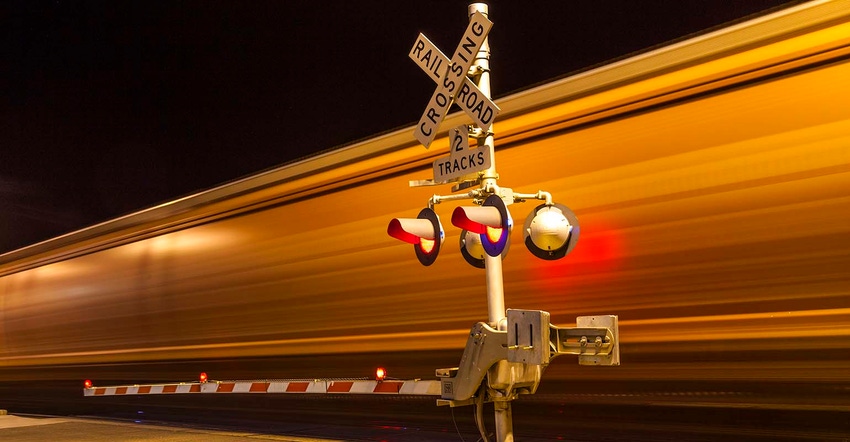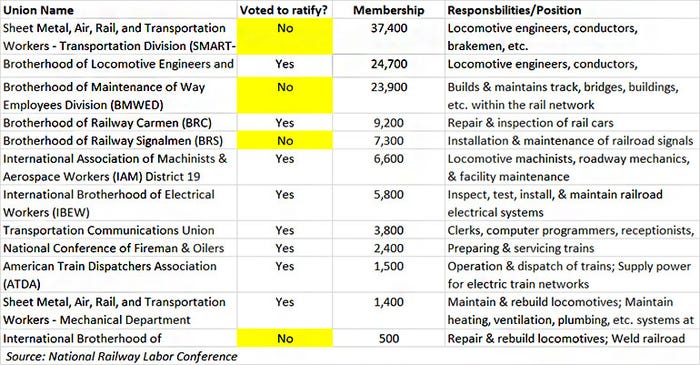The conflicting votes on the Biden labor pact muddy the waters on avoiding a strike. Four rail unions have now voted down the deal.

Members of the nation’s two largest railway unions held conflicting votes on a key labor pact, muddying efforts by the Biden administration to avoid a strike when the labor peace agreement ends next month.
The SMART Transportation division, the largest railway union under the tentative agreement with more than 37,000 members, narrowly rejected the deal while members of the Brotherhood of Locomotive Engineers and Trainmen voted to approve it. Four unions have now voted down the tentative deal while seven have approved it—though a strike could follow if even one of them walks off the job.
BLET approved the contract with 53.5% of the member vote. But the results revealed deep divisions at SMART-TD, with less than 51% of train and engine service workers voting to reject the agreement and 62% of yardmasters voting to ratify it.
While the results don’t necessarily mean there will be a strike, it does put pressure on union leaders to reach a better deal before a cooling-off period expires Dec. 9. It could also motivate Congress to step in to impose a labor agreement against unions’ will—a move that would be politically unpopular for Democrats, but perhaps less so than a supply chain disruption before Christmas.
The National Grain and Feed Association called on Congress Monday to prevent a rail shutdown in December. In a media statement Mike Seyfert, president and CEO, NGFA, noted that a rail strike or lockout combined with existing challenges in the rail system and other modes of transportation, including trucking shortages, low water levels on the Mississippi River, hindering barge shipments, would be “catastrophic for the U.S. economy.”
Seyfert adds: “The rail network has experienced significant service disruptions at different times throughout the past year. Any additional disruption of rail service would immediately impact the nation’s food and agriculture and broader supply chains. The risk in both domestic and international markets is real. Congress must take bipartisan action to prevent a strike or lockout from occurring.”
It was not immediately clear whether the Biden administration would to step in as it did in September, when Labor Secretary Marty Walsh brokered a deal through an all-night negotiating session at the US Department of Labor headquarters.
SMART-TD President Jeremy Ferguson said in a statement Monday he believes the dispute can be settled without a strike, even as he lay blame squarely on railroad companies for the escalating standoff.
“The ball is now in the railroads’ court. Let’s see what they do,” Ferguson said in a statement. “They can settle this at the bargaining table.”
Freight rail companies urged lawmakers to intervene if a deal can’t be reached.
“Let’s be clear, if the remaining unions do not accept an agreement, Congress should be prepared to act and avoid a disastrous $2 billion a day hit to our economy,” Ian Jeffries, president and CEO of the Association of American Railroads, said in a statement.

© 2022 Bloomberg L.P.
Note: Information from NGFA and vote tally from National Railway Labor Conference added by Farm Progress.
About the Author(s)
You May Also Like


.png?width=300&auto=webp&quality=80&disable=upscale)
